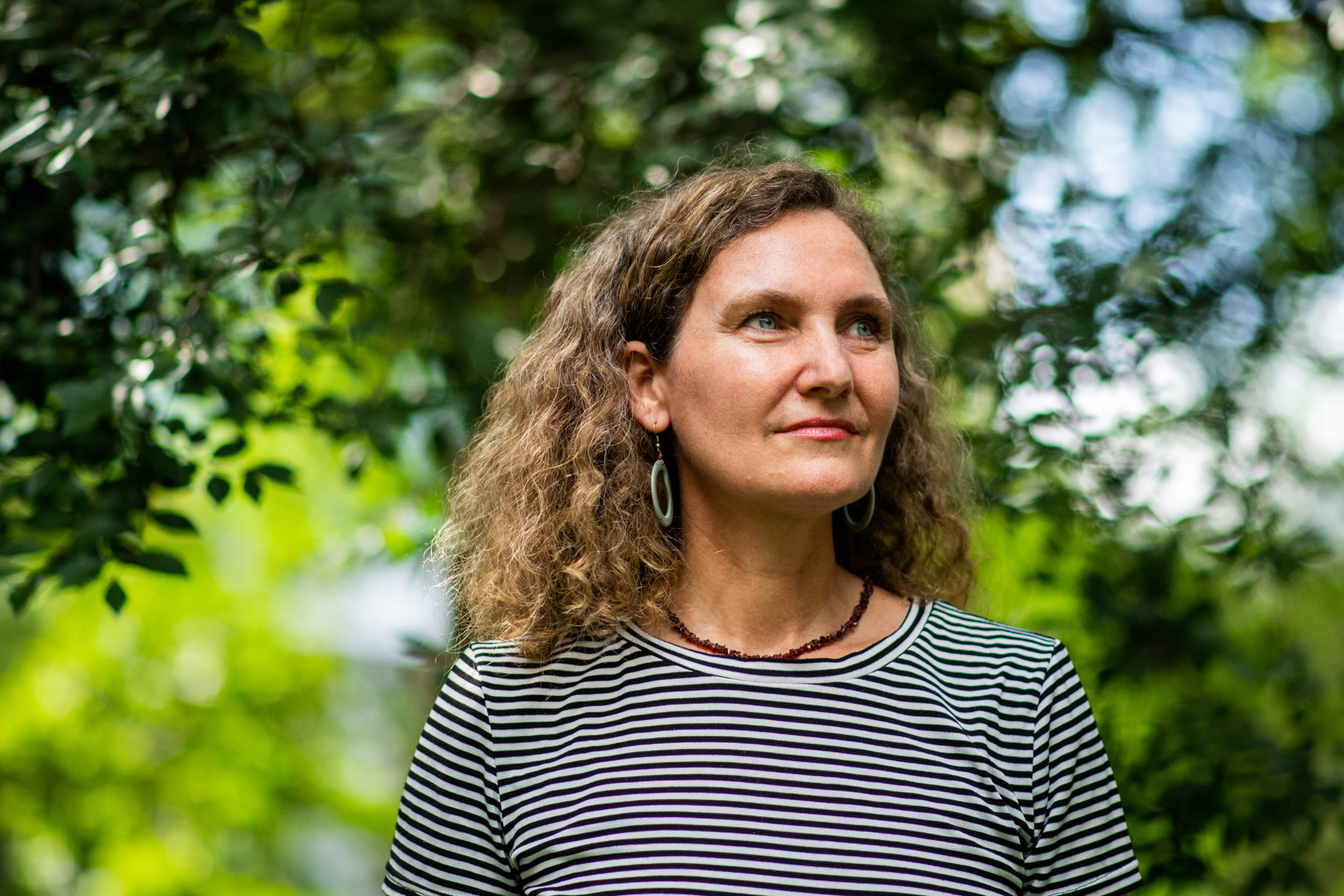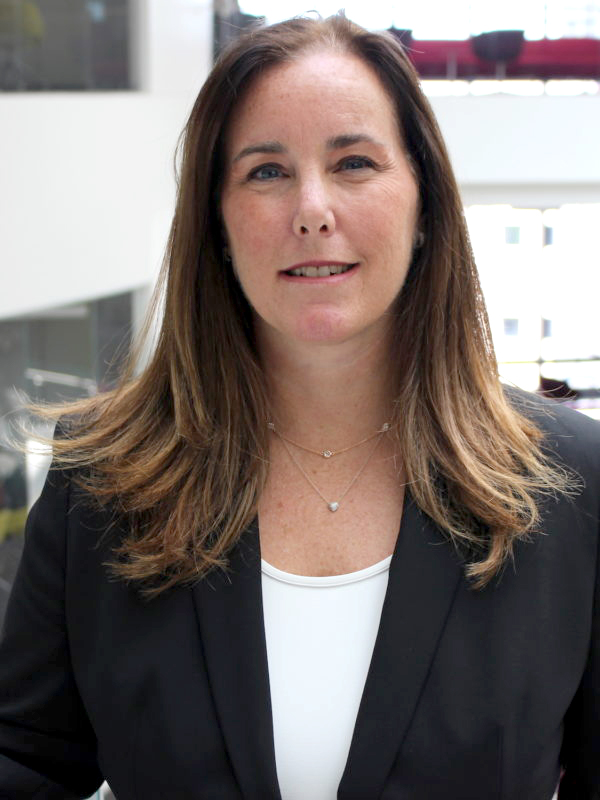They help inmates build new careers after prison

Several times over the past year, Northeastern co-op advisers and students have met on Zoom with prison inmates to offer job-market advice. The people who are incarcerated, in turn, have responded with questions about the careers they hope to develop after they are released.
It’s part of an ongoing Northeastern program that offers career design workshops to inmates at the South Bay House of Correction, about one mile from the Boston campus.

Jen Guillemin, senior co-op coordinator for art and design. Photo by Matthew Modoono/Northeastern University
The workshop participants have the same needs as anyone else who is trying to develop or renew a career, says Jen Guillemin, a senior co-op coordinator for art, design, and theater students at Northeastern. “Like everybody,” she says, “they need to understand where their strengths lie and how they might reframe their story or create a different path.”
The 30-year-old prison, which is administered by the Suffolk County sheriff, houses men and women who are serving sentences of no more than two and a half years.
The workshops have been conducted via Zoom as a result of COVID-19 health and safety protocols, which has enabled men and women to attend the same sessions virtually. About a dozen inmates have participated in each of the eight workshops, which will be continued this fall.
Guillemin built the pilot program last year with Michelle Zaff, an associate co-op coordinator with criminal justice, philosophy, and religious studies students. They were connected to the prison by Helen Hamady, a 2019 School of Law graduate who serves as director of service impact at the Suffolk County Sheriff’s Department.

Michelle Zaff, associate co-op coordinator in criminal justice, philosophy, and religious studies. Courtesy photo
“Suffolk County has workshops and programming and very talented individuals that work long hours to prepare people to re-enter [society],” Zaff says. “They do a lot to help people with their résumés and job searches, and we’re hoping to complement and enhance the work that they’re already doing, and approach career design through a holistic lens infused with creativity.”
Several of Zaff’s students have volunteered for the pilot program at the prison. They’ve created an informal research project and contributed to the county’s re-entry program. This fall, Zaff and Guillemin are turning the workshops into a course in the Experiential Network (XN), an initiative that links learners with real-world partners.
The people who are incarcerated have discussed potential careers in construction, engineering, hairdressing, landscaping, and other fields. They’re interested in “changing perceptions about themselves and where they are and where they want to go,” says Guillemin. “We’re working with them on how to see themselves as professionals, how to develop professional habits and skills, how to think about networks and who they are, and how they can get into better situations once they leave.”
As they prepare for the next round of workshops in November, Zaff and Guillemin are hoping the program will be increasingly driven by students—such as Rina Gellman, who is studying business management and psychology with a minor in criminal justice; and Natalie Surette, a double Husky who recently earned a master’s in criminal justice and is pursuing another master’s in counseling psychology.
At the workshops, Gellman has shared her experiences on job interviews, noting which aspects went well for her and which did not.
“These people probably never had that kind of [career] training that we are so fortunate to have,” Gellman says. “These skills are important whether you’re applying to be a sanitation worker or a lawyer.”
Surette was able to apply her co-op experience as a background screening compliance investigator with The TJX Companies, a corporation of department stores, where she analyzed background checks of prospective employees.
“It was this full-circle moment in the first workshop,” Surette says of her presentation to the inmates. “So many students had questions: ‘My résumé isn’t the greatest,’ or, ‘I’m really worried that I have this conviction in my background.’
“I was explaining there are large companies that will focus on your rehabilitation,” says Surette. “It let them know that there are realistic employment opportunities out there.”
Surette views the workshop participants as an underserved population hungry for a second chance.
“At Northeastern, we have experiential learning, and we’re supposed to be taking what we learn in the classroom and the professional world, and sharing our experiences to better serve our communities,” Surette says. “This is a responsibility that Northeastern students and residents in the community should be applying to all of our community members.”
For media inquiries, please contact media@northeastern.edu.






